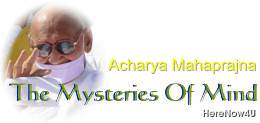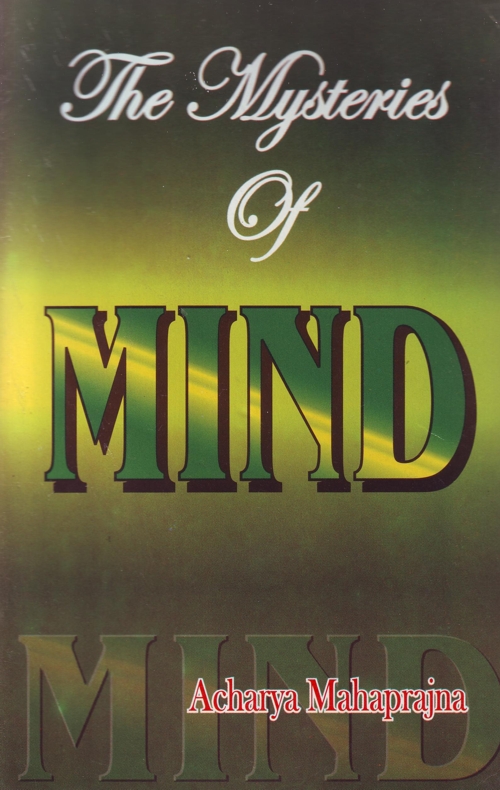
- The currents of energy and feeling, when they flow together, produce mental health.
- The principles of the development of the feeling of equality are also the principles of gaining of mental health.
-
- Let us know ourselves, our strength and weakness.
- Let us take the responsibility of our deeds.
- Let us be dedicated to Truth (universal laws).
- Let us develop tolerance.
- Let us be in our true form.
- The parametre of personality:
-
- It is a device of testing the value of personality and mental health.
- It has six testing points:
- Dress - how we dress ourselves and how much do we remain self-conscious.
- Behaviour in different situations.
- Thoughts - how far are we amiable and amicable.
- Reactions - how do we react to situations.
- Feeling of equality - hope, dejection and sociability.
- Power of taking decisions - on the personal as well as social levels.
The process of arousing energy is an important experience of life. One who is unable to step forward in this direction is incapable of doing anything. An incapable man is a wretched man. His wretchedness will never come to an end. He will remain an object of pity throughout his life. It is strong men who have done something good or bad in the world. Weak persons have not achieved anything. Possession of strength is the first sign of success in the world. But it is not enough to be strong. Knowledge combined with strength gives us a full life. If an ignorant man became powerful, he will misuse his power and meet evil consequences. The life journey of a powerful man who commands knowledge also is a happy journey because it is a new journey never taken up before. It changes the entire process of life.
A powerful but ignorant man will always cause trouble to others. As a matter of fact, such a man causes trouble to himself also. He will mislead others towards false ideals. He will himself pursue false ideals. Attached to unreal things, he will cheat others. He will deceive himself also. On the other hand knowledge combined with power turns the entire effort of man towards a blissful life. Such a man tries to know and attain truth, which is his self. He can under no circumstances be harmful to others.
Once you have started making efforts for knowing and perceiving the self, you will begin to come nearer to such a truth where there is no ignorance and self-negligence any more. If you are really very earnest in self-search your self will never sleep.
The progress of wakefulness produces some strange experiences. The enlightened man says, "Brother Anger, now go away and seek some other abode. Do not expect anything here. Brother Pride, you should also depart now. Mother Deceit, you have nothing to do here. You may also leave. Brother Greed, please quit and go anywhere you like."
Anger, pride, deceit and greed remain active only during the time when we are not wakeful. Once we have become wakeful, they disperse. They are like burglars who enter a house while the owner is sleeping. They run away as soon as he is awake.
Spiritual experiences change the course of life, and turn it towards bliss. Samayika is an exhilarating experience. It is an enlightened experience. It is bliss. The self-experience, the more the samayika and vice versa. Experience of the self and experience of things other than the self are mutually opposite experiences. They cannot go together. Two parallel lines never meet. Only an enlightened person says, "I am performing samayika. " There can be no samayika without enlightenment.
Awakening and torpidity punctuate human life continuously, one after the other. It is therefore, necessary to ask how enlightenment can be made lasting. How can a spark be changed into a permanent glow of light? Will power and a release of mental energy stabilize enlightenment? What we need above all is atonement. Atonement is the first and foremost prerequisite of the feeling of equality. The spiritual traveller travels towards the unknown. The path on which he travels is a path never known by him before. The ideal he wants to achieve is an ideal he has never realized before. The direction towards which he is travelling is a direction unknown to him. He, therefore, needs a support and a guide. Compasses guide the ships on the high seas, spiritual traveller also needs a compass. The practitioner, before he puts his foot on the path he wants to walk on, prays for atonement and says, "0 Lord! I present myself to you. I want atonement with you so that my journey may be successful."
The practitioner performs samayika by keeping the Lord as a witness. He wants to imbibe the highest spiritual force. There is no use accepting an unatoned person as a guide for such a person is bound to mislead him into indiscipline. The guidance, which he will, gives result in a violent exploitation of others. It is, therefore, desirable to seek such a guidance, which will, is inpire and lead him to the correct ideal of atonement with the supreme self. The ideal of paramatma, the highest soul, never lets him down.
When the soul of the practitioner identifies itself with the supreme spirit, his life acquires a new hue. Atonement is therefore, a great prize. Having won it he gets rid of evil tendencies once for all. His former association with evil tendencies and deeds had kept him distracted and confused. Samayika begins with the feeling that the world we live in is qualitatively different from the self. He has realized that his association with objects and activities opposed to his self results in misery. We experience a state of samayika only when we take things other than the self to be entirely different from and opposed to the self. Anger, pride, deceit and attachments and aversions, which have become mixed up with life never allow samayika to take place. They simply lead to false consciousness. But once their alien nature has been understood, consciousness takes a turn for the better and having got rid of evils, the practitioner attains a state of samayika.
 Acharya Mahaprajna
Acharya Mahaprajna

